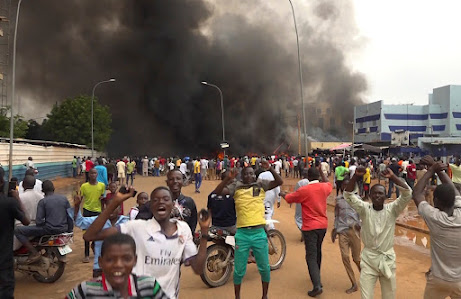By Mike
Ozekhome
On Sunday, June 12,
2016, leading lights in the human rights and pro-democracy movement in Nigeria,
gathered at the late M.K.O. Abiola’s house, to mark “June 12”, 23 years after this talismanic,
watershed and cornerstone of a people’s election. I was one of them. We paid
tribute and sang solidarity songs. We x-rayed the state of the nation. We laid
wreath at his tomb. We did not forget his lovely wife, Kudirat, who was
martyred with him. We prayed by her graveside. An amazon that carried aloft the liberation torchlight after her husband’s incarceration in military
dungeon, she epitomised women’s potency, fervour and ardour.
June 12 is very
stubborn. It is simply indestructible, ineradicable, indelible, imperishable
and ineffaceable. It sticks out like a badge of honour, the compass of a
beleaguered nation. It cannot be wished away. Never. Aside from October 1, when
Nigeria
had her flag independence, June 12 remains the most important date in her
annals.
Nigeria and June 12 are like Siamese twins. The snail and the shell. They
are inseparable. Like six and half a dozen. Like Hamlet and the Prince of
Denmark.
You cannot discuss May 29 without its forebear and progenitor, June 12. To
attempt that is comical, droll chucklesome, even bizarre and freakish. June 12
is not just a Gregorian calendar date. It is Nigeria’s authentic democracy day.
That was when genuine democracy berthed in Nigeria. Nigerians had trooped to
the polls to vote for Abiola. On June 12, 1993, Nigeria stood still. Nigerians
became oblivious to religious sensibilities and ethnic nuances. They did not
care that Moshood Kashimawo Olawale Abiola, Bashorun and Aare Onakanfo of
Yoruba land, was a Moslem who was running with another Moslem, Alhaji Babagana
Kingibe. The gods and goddesses of ethnicity, tribalism and religious bigotry
were brutally murdered and interred.
The apparitions of
gender, culture and class discrimination, were sent back to their graves.
Abiola, the Social Democratic Party (SDP) candidate, squarely won the election
under Babangida’s option A4. He trounced his challenger, Alhaji Bashir Tofa of
the National Republican Convention (NRC). He had campaigned with “Hope 1993” (a message of
possibilities later adopted by Obama in 2008). His was “Farewell to Poverty”
manifesto. Both resonated well with Nigerians. Abiola, who had joined politics
at 19 under NCNC, in 1959, had used his stupendous wealth to water the ground
and build bridges of unity, understanding and acceptability across the length
and breadth of Nigeria.
He had Concord
newspaper and airline to help propel his ambition. He regarded money as nothing
but manure with which, like plants, human beings are nurtured. Abiola had
defeated Bashir Tofa, even in his Gyadi-Gyadi Ward, Kano.











